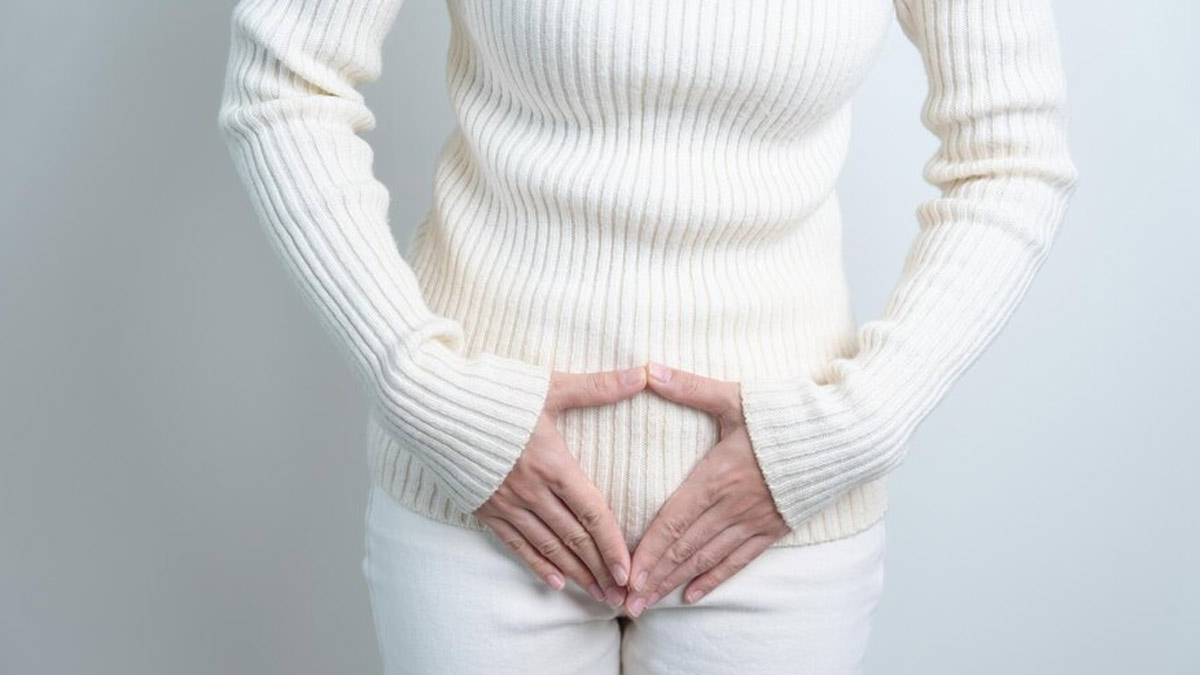
Menopause marks the end of a person's menstrual cycle. The average age of menopause is 51, but it can occur anytime in your 40s or 50s. Vaginal dryness, hot flashes, chills, and mood changes are some of the common symptoms of menopause, but since it is a natural biological process and not a medical condition, there are no specific treatments for it.
Table of Content:-
However, menopause requires effective management as it is linked to various health problems, including Cardiovascular Disease (CVD), osteoporosis, and depression. Some women during menopause also experience urinary incontinence, which is characterised by uncontrolled urine leakage. This is exactly what we will be discussing today. Speaking with the OnlyMyHealth team, Dr Astha Dayal, Lead Consultant-Obstetrics and Gynaecology, CK Birla Hospital, Gurugram, sheds light on the link between the two and also discusses ways to manage the condition.
Also Read: Premature Menopause: Understanding Health Risks And Symptoms To Watch Out For
What Is Urinary Incontinence?

Urinary incontinence, sometimes called bladder weakness, is the involuntary leaking of urine.
It's a surprisingly common problem that can affect people of all ages, though it's more frequent as we get older. According to StatPearls Publishing, about 42.3 crore people worldwide are affected by some form of urinary incontinence. 24–45% of women experience some leakage, with the risk increasing with age. Even younger women, between 20 and 39, are affected, with rates ranging from 7 to 37% reporting occasional leaks. The numbers get higher for women over 60, with nearly a third (9% to 39%) experiencing daily incontinence.
There are different reasons why this happens, like weak pelvic floor muscles or sudden urges to urinate. The good news is that urinary incontinence is treatable.
The Link Between A Weak Bladder And Menopause
Dr Dayal says that the risk of urinary incontinence in women can increase with the onset of menopause.
She explains, “The hormonal changes that come with menopause, especially the drop in oestrogen levels, are the cause of this connection. The pelvic floor muscles and tissues support the bladder and urethra, and oestrogen is essential to their health and suppleness. These tissues may weaken during menopause when oestrogen levels drop, which could result in less control over one's bladder and a higher risk of urine leakage.”
She adds, “Menopausal alterations may also impact the bladder's own functionality, resulting in symptoms like frequent and urgent urination.”
Also Read: Hot Flashes And Heart Disease: Is There A Link?
Risk Factors For Urinary Incontinence During Menopause![]()
Besides hormonal changes, several other factors can increase one's risk of experiencing bladder leaks during menopause. These include:
Age: Ageing can cause the pelvic floor muscles to weaken and the control over one's bladder to decline.
Childbirth: Women who have had vaginal births may have pelvic floor muscle injuries, which raises the possibility of urine incontinence following menopause.
Obesity: Carrying too much weight strains the pelvic floor and bladder, which raises the risk of urine leaks.
Family History: Those who have a history of urine incontinence in their family may be more likely to experience the illness after menopause.
Previous Pelvic Surgery: The pelvic floor anatomy might be disturbed by previous pelvic surgeries, such as hysterectomy or pelvic organ prolapse repair, which can lead to urine incontinence during menopause.
How To Manage The Condition

Urinary incontinence during menopause can be managed and treated with a combination of medication, pelvic floor exercises, and lifestyle changes, says Dr Dayal. Some of the strategies include:
- Maintaining a healthy weight with frequent exercise and a balanced diet
- Exercises for the pelvic floor, commonly referred to as Kegel exercises, help build the muscles that regulate bladder function
- Bladder training strategies, such as urge suppression and regular voiding
- Changing one's behaviour, such as cutting out on alcohol and coffee
Conclusion
The chances of urinary incontinence or a weak bladder can increase during menopause. This is mainly because of the drop in oestrogen levels. However, other factors, including weak pelvic floor muscles and obesity, can also increase its risk in women aged 45 and above. With a combination of lifestyle changes, exercises, and medications, urinary incontinence can be managed and treated in women in their menopausal phase. Speaking with a healthcare professional to discuss your options.
Also watch this video
Read Next
From Stigma To Strength: WaterAid India’s Meenal Patole On The Power of Menstrual Health Education
How we keep this article up to date:
We work with experts and keep a close eye on the latest in health and wellness. Whenever there is a new research or helpful information, we update our articles with accurate and useful advice.
Current Version
